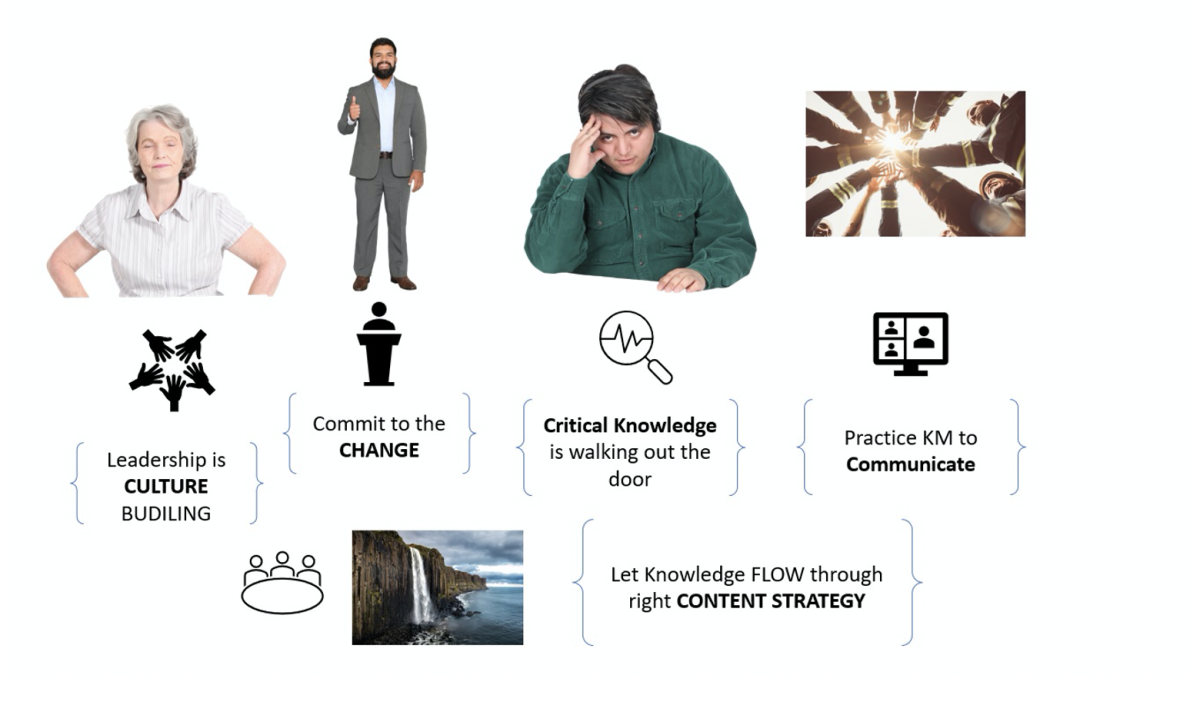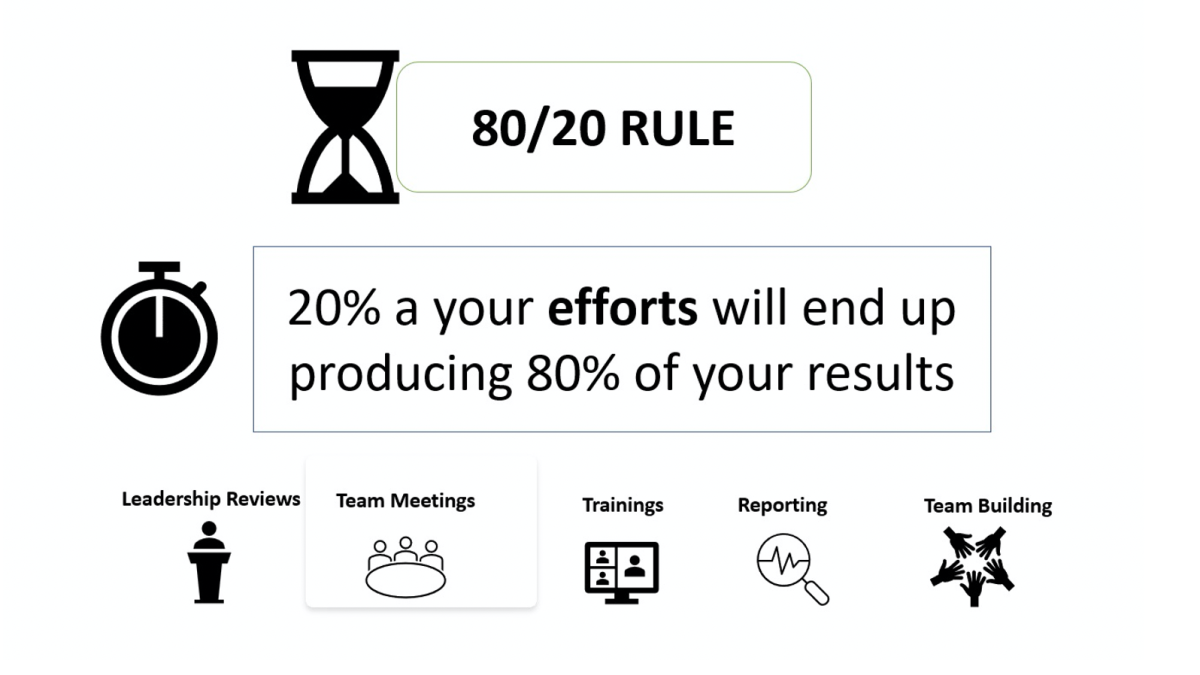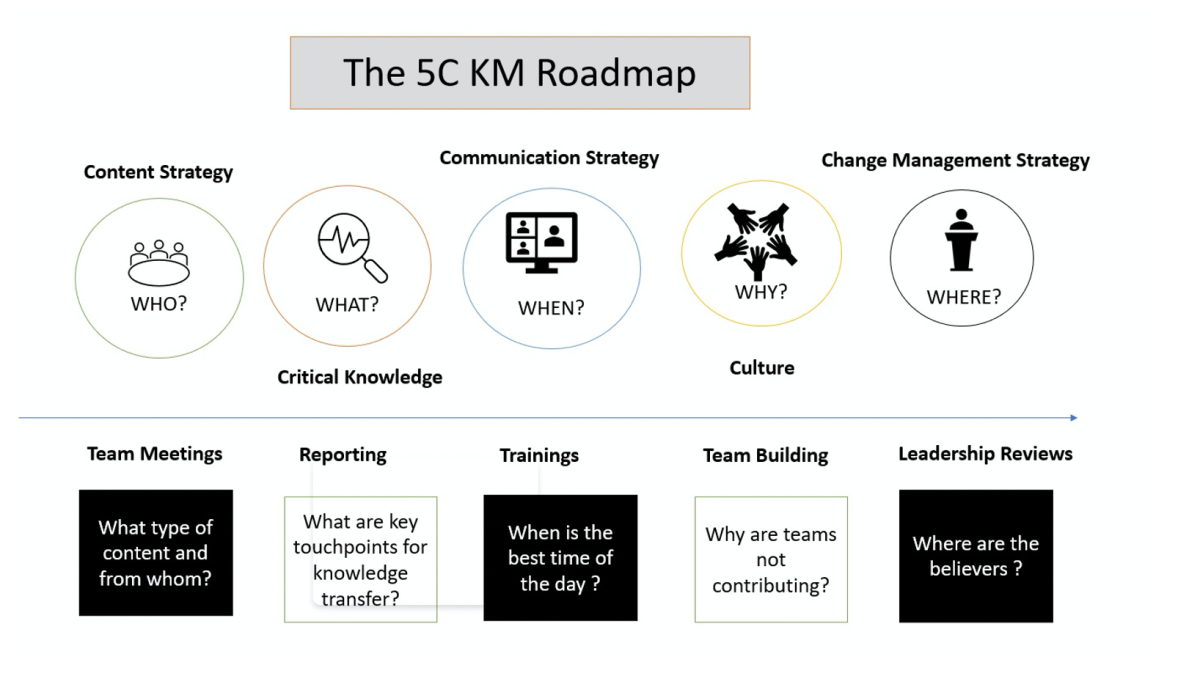...
How would you like to be a Guest Blogger for KMI? Email us at: info@kminstitute.org and let us know your topic(s)!
The '80/20' Pareto Principle in Knowledge Management
 Today, successful organizations have established Knowledge Management as a key driver for driving their Digital Transformation roadmap. To achieve this, it is imperative that the collective objectives from the km program. should be aligned to the individual goal setting for the team. However, there is a problem?
Today, successful organizations have established Knowledge Management as a key driver for driving their Digital Transformation roadmap. To achieve this, it is imperative that the collective objectives from the km program. should be aligned to the individual goal setting for the team. However, there is a problem?
It is a known fact that not everyone in a team can work at full capacity 100% of the time. This means that only a percentage of their efforts are at full capacity. So, most individuals learn to focus on perfecting proven skills based on aligning to know what they do best and not NECESSARILY something that should take up one's day.
The obvious question that comes to mind is while KM can do many things, how do we ensure our teams understand their goal setting is to transform our enterprise into a learning organization, and help achieve organizational excellence? We need to begin by designing the KM roadmap and align the KM workplan to goal setting by following the 'Pareto Principle'.

To be effective leaders we need to align the 5C Roadmap to goal setting.

If you can relate the activities to the Pareto principle in the above graphic, then we need to start with defining must-do activities around the below.
- Content Strategy helps you drive traffic and ensures it generates the right leads that translate into meeting your business outcomes. Most teams define this at a high-level starting in the beginning of the year, promote it throughout the year, and manage it through the content lifecycle which is a quarterly exercise. Then where is the problem? It's the content pieces that are a priority for our teams, and we must deliver them in a timely manner which is where we mostly fail to relate them to our content strategy and hence get away from our goal setting.
- Critical Knowledge is knowledge that if managed well offers a sustainable advantage. This also can be tacit knowledge that is gained through real-life, on the ground experiences and requires not just capture but creation techniques. Most organizations are building CoPs , Ask an Expert systems and other techniques including de-briefing meetings at the end of a project. Then where is the problem? We need to acknowledge that keeping the balance between keeping a watch on the grassroot level knowledge needs with prioritizing the ones with the highest likelihood and consequence of knowledge loss. There is a need to develop a knowledge map to identify at risk knowledge and then build upon this to understand how the knowledge flows within your organization.
- Communication Strategy is aimed at ensuring our critical knowledge flows with the aim to reach the right targeted audience and it flows across the organization to ensure its aimed at prompting right action. Then where is the problem? For example, organizations align as part of the KM team Communication Strategists, tasked with sharing km impact stories that talk about the business value. These practices however do not always connect with users share it on their own as the means are not standardized and this creates ambiguity for adoption.
- Culture is related to people's behaviors and many organizations align to designing incentive programs around km activities for encouraging knowledge sharing. However, if we look at small organizations, they purely drive their practices based on culture as they are constrained by human effort, time, and budget to implement KM. Then where is the problem? So, is it the founder's mindset and the values of the organization that ensure everyone shares critical knowledge as their existence depends on it for growing the organization?. Knowledge thrives if there is a sense of openness, autonomy, experimentation and above all trust that promotes risk taking with collaboration.
- Change Management Strategy is about dealing with change, and it helps in aligning the changing employee processes and behaviors. It ensures that as organization transform through their Digital Transformation journey KM continues to flow ensuring the right information goes from those who create it to those who need it. So where is the problem? The larger problem is that as we focus on organizational excellence leaders fail to turn believers and call out how through KM is where we can promote employee participation to progress on continuous improvements that foster innovation. So, there is a need to make sure leaders promote that its only through KM that the development goals can be achieved.
In-Summary
While we continue to transform our enterprise into a learning organization and help our leaders in our Digital Transformation journey it is important, we relate to the 80:20 Pareto Principles and objectively manage our goals rather than other way round.
Here are three key steps
- Identify what your key results / goals are
- Apply the 80/20 rule to prioritize your tasks for achieving the collective goals
- Protect the most important activities from the least important ones and then prioritize them among your teams and ensure you re-visit them once a quarter
This will help us to design our teams around the 5C's KM roadmap. We as leaders need to act like founders and promote a more risk-taking appetite among our teams, and show that it is only through KM that we can achieve organizational excellence.
Disclaimer: These are purely my own views and experiences as a seasoned KM partitioner in driving employee engagement and operationalizing the KM strategy through helping employees Connect & Collaborate.
~~~
About the Author: Michael Sequeira is an independent consultant who is passionate about helping organizations discover how KM can be a key differentiator for their business, teams, and clients. If you would like to learn more about his background and get-in-touch you can connect with him on LinkedIn.
Archives
- March 2021 (6)
- February 2021 (4)
- January 2021 (6)
- December 2020 (5)
- November 2020 (2)
- September 2020 (2)
- August 2020 (2)
- July 2020 (2)
- June 2020 (1)
- April 2020 (2)
Pages
RECENT POSTS
...












 ...
...
